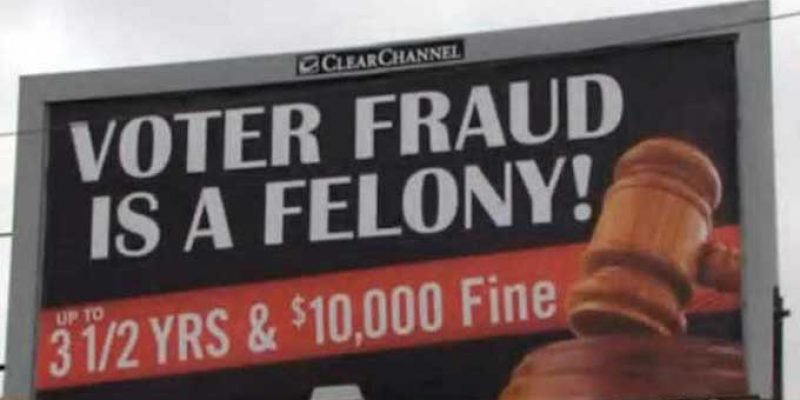After the Texas AG Ken Paxton made national news by reporting that approximately at least 58,000 non-U.S. citizens voted in the last election, lawyers with 13 organizations have threatened to sue saying the state’s attempt to fix the problem violates federal law.
58,000 non-citizens voted in Texas, with 95,000 non-citizens registered to vote. These numbers are just the tip of the iceberg. All over the country, especially in California, voter fraud is rampant. Must be stopped. Strong voter ID! @foxandfriends
— Donald J. Trump (@realDonaldTrump) January 27, 2019
The Texas Civil Rights Project, the ACLU of Texas, the League of Women Voters of Texas and the NAACP Legal Defense Fund are among the groups, who are demanding that the state rescind an advisory it sent to local election officials. The advisory requests counties to check the citizenship status of the individuals who voted and are allegedly not citizens. The groups sent a letter sent Monday requesting a response from the state by Jan. 30. They claim the state’s data is flawed and are demanding more information about the methodology it used.
Some of the groups are considering litigation against the state, said Beth Stevens, voting rights legal director for the Texas Civil Rights Project, the Texas Tribune reports.
The Texas secretary of state’s office announced it would send local election officials a list of the 95,000 registered voters it identified who voted who provided the Texas Department of Safety some form of documentation like green cards or work visas, which evidence that they are not citizens and should not have voted.
This begs the question– why were they allowed to vote in the first place? Who let them in?
Non-citizens can obtain driver’s licenses and state ID cards with work visas and green cards. But a driver’s license can be used as identification to vote– meaning far more than 95,000 people voted illegally.
There are more than 95,000 illegal aliens driving in Texas.
However, the groups points to a similar methodology used by the Florida government that created a list of 180,000 registered voters that officials claimed were not citizens. Their basis was the documents driver’s license applicants used to obtain a driver’s license. The state was taken to court after only 85 out of the 180,000 were proven to be “actionable” cases.
The documents people use to get a license may not reflect their status today, critics argue. For example, more than 30,000 “immigrants” in Texas were approved to become naturalized citizens in the first half of 2018. More than 52,000 were approved in 2017, the Tribune reports.
By law, county governments cannot automatically revoke a voter’s registration. Counties can only ask a registered voter to verify his/her proof of citizenship within a certain time period.
Advertisement
Advertisement

